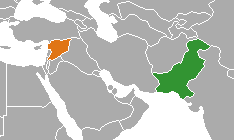20-02-2024
Burak Tahsin Bahce
International Justice and Human Rights Intern
Global Human Rights Defence
On 13 February 2024, the European Court of Human Rights delivered its judgment on significant shortcomings in the investigation of a British national holidaymaker`s rape allegation in Greece. It found a violation of Article 3 (prohibition of torture) and Article 8 (right to respect for private life) of the Convention. While the judgment in question has widely relied on its previous case law in principles, it is remarkable as it highlighted the vulnerability elements and sensitive nature of the concrete circumstances of the case and referred to the GREVIO Baseline Report on Greece. On the other hand, the applicant`s lawyer described the judgment as a “monumental moral victory” as “it had not only exposed the Greek justice system’s failings but would set a precedent at a time when more UK tourists than ever visit the country”.
The British national applicant, 18 years old at the time of the alleged incident, was on vacation with her mother in Greece in 2019. She alleged that she was raped by a hotel bartender there. Upon her complaint, several medical examinations and pre-investigative proceedings have been carried out, followed by a criminal prosecution. The main criminal investigation was closed by the prosecutor’s findings that the assertion of the accused claiming that the complainant had consented and that there were no indications he committed rape. After that, the domestic court decided in the same way with a similar reasoning.
Following these proceedings as briefly mentioned, the applicant took her case before the European Court of Human Rights and complained of shortcomings in the criminal proceedings. The Court found that the Greek authorities failed to provide proper information throughout the proceedings and had not carried out an effective investigation. It further reiterated that the authorities should have been mindful of the alleged victim’s rights and avoided secondary victimization and highlighted the intimate nature of the subject matter, the applicant’s young age, and the fact that she claimed to have been raped while on holiday in a foreign country called for a sensitive approach on the part of the authorities. In this sense, the Court found that investigating authorities had not taken adequate measures to prevent her from being traumatized further, to mitigate what was clearly a distressing experience for her, and had not taken her needs sufficiently into account. Moreover, it noted that neither the prosecution nor the court had analyzed the circumstances of the case from the perspective of gender-based violence, and, therefore, failed to establish all the circumstances to take account of the particular psychological factors in alleged rape cases and to make a context-sensitive assessment of the credibility of the various statements.
In addition to these important findings, remarkably, the Court, without expressing an opinion as to the guilt of the accused, also referred to the GREVIO Baseline Evaluation Report on Greece issued in November 2023. The report, which is prepared by a group of experts and functions as a monitoring mechanism of the Istanbul Convention of the Council of Europe, expressed concerns about “low conviction rates which suggested either that investigation procedures were ineffective or that an unreasonably high threshold required to reach a conviction was applied and that although the national law provided a comprehensive set of rights for victims of gender-based crime, most of the provisions were not fully implemented in practice, and the experience of the criminal justice system was still highly traumatic for many women and girl victims”.
Therefore, the Court`s judgment was important as it included strong emphases on the significance of a perspective from gender-based violence, and state obligations to conduct effective investigations on alleged rapes, particularly in such vulnerable and/or sensitive situations taking adequate measures to prevent second victimization. Its reference to the GREVIO report has further drawn attention to the importance of a mindful judicial practice and strong judicial policy in investigating rape and other gender-based crimes.
Sources and further readings:
Significant shortcomings in investigation of British holidaymaker’s rape allegation in Greece, ECHR 032 (2024), the Registrar of the European Court of Human Rights, 13 February 2024).
X v Greece, App no 38588/21 (ECHR, 13 February 2024).
Helena Smith, ‘Human rights court finds failings in Greece tourist rape inquiry’ (The Guardian, 14 February 2024) <www.theguardian.com/world/2024/feb/14/human-rights-court-finds-failings-in-greece-tourist-inquiry> accessed 20 February 2024.
X v Greece, App no 38588/21 (ECHR, 13 February 2024), para 89.
GREVIO, Group of Experts on Action against Violence against Women and Domestic Violence (GREVIO) Baseline Evaluation Report on Greece (GREVIO/Inf(2023)23, Council of Europe 14) <https://rm.coe.int/0900001680ad469d> accessed 20 February 2024.








Comments